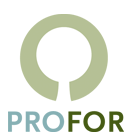Supported by the Program on Forests (PROFOR) and the Forest Law Enforcement and Governance trust fund (FLEG-TF), the 'Toolkit of Forest Control and Supervision: Practical Field Guidance' aims to provide low-cost, hands-on tools for forest management.
It also contains a component focused on logging contracts with indigenous peoples' and communities.
 20 July 2015: Supported by the Program on Forests (PROFOR) and the Forest Law Enforcement and Governance trust fund (FLEG-TF), the ‘Toolkit of Forest Control and Supervision: Practical Field Guidance’ aims to provide low-cost, hands-on tools for forest management. It also contains a component focused on logging contracts with indigenous peoples’ and communities.
20 July 2015: Supported by the Program on Forests (PROFOR) and the Forest Law Enforcement and Governance trust fund (FLEG-TF), the ‘Toolkit of Forest Control and Supervision: Practical Field Guidance’ aims to provide low-cost, hands-on tools for forest management. It also contains a component focused on logging contracts with indigenous peoples’ and communities.
Primarily designed for government officers of forest agencies, particularly in tropical countries seeking to implement timber legality verification systems, the Toolkit includes two components. The first one is a user’s field manual for verifying the legal origin of timber, with a focus on inspections in forests, sawmills and lumber yards, which is considered an important step towards verifying that the volume of timber actually harvested matches the volume planned, and complies with forest regulations. The modules provide details on how to organize an inspection team, how to determine if a particular tree is missing, and how to calculate the volume of standing trees and different timber products, among other procedures. The chapter also provides a list of lessons learned from forest-rich countries like Nicaragua and Costa Rica, emphasizing best practices such as avoiding conflicts of interest within forest monitoring systems, which might arise from receiving financing from logging companies, for example.
The second component in the Toolkit provides guidance for setting up logging contracts between the forest industry and indigenous peoples’ communities. Some 60 million indigenous peoples are totally dependent on forests, and as demand for valuable timber continues to grow and indigenous land rights are increasingly recognized, contracts between indigenous peoples and loggers are becoming more frequent. The goal of this module is to improve logging contracts for the benefit of indigenous peoples, including by supporting community-run committees for forestry monitoring. The component was based on input provided by practitioners from Bolivia and Peru, to help bolster information on documented experiences related to commercial relationships between loggers and indigenous peoples’ communities. [PROFOR Press Release][Publication: Toolkit of Forest Control and Supervision: Practical Field Guidance]